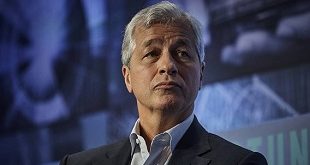
By Stephen Kafeero and Eriasa Mukiibi Sserunjogi
In an attempt to revive vibrant debate at Makerere University, the Makerere Institute of Social Research (MISR) hosted former South African President Thabo Mbeki on Jan. 19. The Independent’s Stephen Kafeero and Eriasa Mukiibi Sserunjogi captured the highlights of the question-and-answer session on the trajectory Africa has taken since the end of the Cold War, moderated by Prof. Mahmood Mamdani.
We seem to be producing many graduates but very few intellectuals (in African universities). What is your vision of African intellectualism?
I don’t want to make rude comments about matters of age but I mean when we grew up there was indeed a very vibrant intelligencia which was very much engaged in these issues of what should happen. In Makerere here, Dar es Salaam, Ibadan, Ife, a lot of these universities were very much engaged. But this period the intervention of the African states against the universities, again as Prof. Mamdani said, they saw them as centers of opposition. I think that’s what happened. What did that do to the African intelligencia? I think there was a period when this African intelligencia in a sense got intimidated. It didn’t have the space. I am sure you have read what Ngugi wa Thiongo has written about the things that happened in Kenya and I think that narrative is correct. Perhaps the problem we have is we haven’t recovered from that in all sorts of ways – recovered in the context of financing the universities, for example. Because you would remember that time part of what happened was that the World Bank for instance took a particular position, that higher education among the Africans wasn’t important. What was important was especially primary education. They put these things as though they were in contrast with each other, which also affected the financing of higher education. I think that this matter needs a conscious intervention by African intellectuals.
African culture is often used to stall progress or to deny responding to the needs of social minorities like women, children or any other group that they consider not to be part of the main stream. We continue promoting a kind of conservatism.

I mean it’s obvious that anybody who will present this notion of the African identity as being static is not telling the truth. Here I am wearing a tie; what is African about it? Anybody, I suggest, who says that there is such a thing which is static that is called an African identity and therefore there is such a thing that is embedded in this which requires discrimination of women and all of that; they are taking reactionary positions. They are taking advantage of this notion of African identity to achieve reactionary purposes. The identity of any people has to be dynamic; inevitably it has to change. But to ask the question, what are the major tasks we face as Africans? What is it that we have to do to make our conditions better and then see what you need to do about that? So as you have to say the matter of gender equality, emancipation of women and so on is a challenge on the continent. But surely if you are interested in the progressive development of the continent, you’ve got to do that. I am saying the notion of a static identity is obviously false and will be used by people trying to resist change and I think we have to fight that.
African literature of the 1960s tried to define Africa – who we are, what we want and how we can achieve it. Now almost everything in Africa seems to be done by the West.
I think that part of what has happened is that the progressive movement on the continent is in retreat; that is what I think. The progressive voice that was trying to define where Africa should go died away in regard to universities because of the manner in which the ruling groups in Africa acted against Universities. And then came the end of the Cold war, what this seminar is discussing now. First of all you had to deal with the reality of neo colonialism on the African continent. Even as you remember the big debate leading to the formation of the OAU when the African continent got split into two – with the Casablanca and Monrovia groups that had to do with the same question that you are addressing. The Casablanca group was trying to say that our independence should not end with just raising our flags but we have to do something about our condition and how to deal with the nature of our former colonial masters. But I think over time that Monrovia (gained ground) and the progressive movement on the continent has gone into retreat. I think in the context of the collapse of the Soviet Union, all of us have got to be talking about free markets, deregulation and so many other things. The space that existed where we could talk about other things got squeezed and this is the challenge we face on the continent.
Do you see a role for an activist business sector in bringing about the changes we would like to see in Africa?
I think everybody now accepts that the thesis that the private sector is the engine of growth and the state facilitates, is not correct. I think it is generally acceptable now, even by the strongest proponents of this thesis that this is not right because both the private and the public sectors have got a role to play in this regard. And it is true that the private sector must be an important player. One of the reasons the private sector is important is because it owns capital, to open a factory, a mine and so on. It would be very foolish for anyone to tell anybody that I do not want you to use capital to invest into economic development. And indeed the private sector has to play its role. Indeed part of what the African governments have to do is privatise because in many instances state corporations run at a loss and require subventions from the budget to keep them going. So rather than spend this capital to sustain business that is not running well and take away money from schools and so on they had to privatise. So I am saying that is part of the argument. So what is the role of the private sector? If this private sector could say, in my own interest in order to make profit I need to invest in the Ugandan economy so that it grows and I will make profits, I think that is what the private sector should do and become activists in that regard. The Economic Commission for Africa is setting up a commission to investigate the illegal export of capital from Africa and their estimate is that the continent annually loses $50b, lost through illegal export of capital. I hope the private sector could be active in that area to stop that from happening. We lose most of this capital exported illegally by the private sector and impacts negatively on the potential for growth. I am saying hopefully that the private sector could be active in that sort of area. I think the activism of the private sector ought to focus on what things we need to do in order to generate capital and invest it in conditions that encourage that kind of investment. And indeed what do we do so that we do not lose a lot of that capital, as it happens, to developed countries? So what does the private sector do about that; that is the activism which I think is correct.
There is an MP in Kampala who has tabled a Bill that because I am HIV positive (and I am sexually attracted to fellow women) and if I get into an intimate relationship with my partner I will be killed. What would you say to that MP?
I would say to the MP that sexual preferences are a private matter. That is what I would say to him. I do not think it’s a matter for the state to intervene. But I think he would probably say to me it’s African culture. I only do not see how do you do it.
On managing Africa’s natural resources and term limits
The matter of the management of African resources is obviously very important and the use of those resources to benefit the population (is critical). A question was raised about Uganda. You are Ugandans and obviously don’t wait for the AU (African Union) to tell Uganda what is going to happen. They obviously won’t come. So it’s a matter you have to handle yourselves so that the resources impact on the population. I think it’s true also of the expectation that the AU is going to go around the continent telling heads of state to retire. They are not going to do it. This business of term limits came as the African continent was democratising, from the (19)90s onwards, and it was a reaction to what had happened before, of the people who had stayed in power for so long and so on. And so people spoke about introducing these term limits. It was a tactical thing (that) we have transformed it into principle. The British do not have term limits, who says they are not democratic? Canadians, I think they don’t have (too). But why are they democratic and we are not if we do not have term limits? I am saying this matter of term limits was introduced at a specific point on the African continent but to turn it into a principle of democracy is not quite correct. Whatever the political problem that you guys are facing: deal with it.
Why did the African Union fail to handle the Libyan crisis, leading to intervention by NATO?
The problem here is what has been communicated about this is wrong. The AU took specific measures in regard to solving what was happening in Libya. They (AU) engaged Gaddafi and his government about what was happening. Gaddafi and company agreed and even set policies that fighting must stop; let’s have a cease fire and engage in such a way that the Libyans sit down and decide among themselves their future. I think they wanted Gaddafi to go. (There were) discussions on how to treat the migrant workers in Libya. The AU took those decisions and as required as required (of) regional organisations and the UN Security Council in these situations of conflict. The AU sent its report to the UN Security Council and said that this is what we are going to do in regard to this crisis. The Security Council ignored what the AU was going to do in regard to this matter and went ahead did its own things. As you have heard about that conflict, they say we have consulted the league of Arab states. Libya ceased to be a member of the African Union in their minds. They did not consult the African Union because they didn’t agree with the positions the African Union was taking. So the idea that the African union didn’t do anything is wrong.
 The Independent Uganda: You get the Truth we Pay the Price
The Independent Uganda: You get the Truth we Pay the Price


